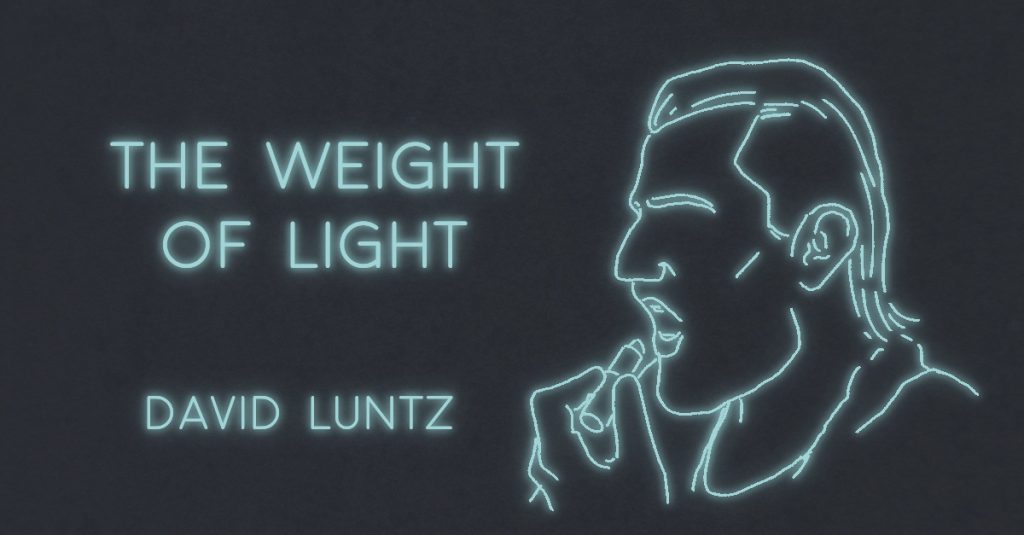The weight of light can be measured by my Uncle Kev’s death. But before that, some memories: it’s family dinner and Uncle Kev’s explaining how the bread mashed in his ex-boxer’s sixty-year-old fist represents Pangea and the glass of red wine in his fingers the Tethys Sea. He’s telling us about the earth’s history, Wegener’s theory of continental drift, orogeny, extinct volcanoes, dragonflies in amber, and trilobites. Mom and dad tune him out. So do I. I get enough of that kind of shit at school. But Uncle Kev doesn’t care. He’s relentless, a natural fighter, and won’t stop until he’s educated me properly. Most of his instructing takes place in his car when he’s driving me somewhere. There’s no escaping him there.
When he talks about light, his eyes gleam like wet pebbles. He always smells nice, like Old Spice aftershave. He waves his hands a lot. They’re hairy and tufted, like a coconut. His polished nails blur cyan in the air. One time, he tells me about how light actually dies as it hits our eyes, and says, “Isn’t that beautiful, I mean that light must die so we can see?” I wish I’d really been listening to him, at what he was really trying to tell me, but I thought then that he was just plugging some lame religious metaphor: light is just like Jesus, always sacrificing and always giving, existing in some sublime state of eternal crucifixion and resurrection. And I reply: Maybe light would rather not die. Maybe light doesn’t give a shit about our sight.
It’s the only time I remember him giving me a grieved look. But this was before, and now we’re driving down Route One and Uncle Kev blurts out, “Kinch,” which is what he calls me after reading Ulysses, “Answer me this: How’s the spirit supposed to fecking survive when it’s got to look at this shite every fooking day?” nodding at the strip malls and billboards, a question whose unanswered weight each passing season presses down on me like ten thousand leaves, maybe more, because soon afterward come his limp wrists floating like pale petals in a pink scurf that won’t come out of the tiles. And because he still burns and reaches me like light from a dead star, it makes no sense to say he no longer exists, especially when I see him as a child, basking on kilned rocks after swimming in the cold water of Keeley Bay, telling me how much he loves it there, the sunbaked scent of stranded kelp, the wisps of tickling seaweed, and the way light rushes into spaces he never knew about inside him, promising that it will always be there and never leave him. And I wonder too, sometimes, if what he did was his way of giving back the gift, so light could see things it couldn’t otherwise see, and whether somewhere, perhaps not so far off, he still skips up to some sunny attic where he unpacks his sewing machine and stitches a dress from old curtains, hoping that when he hits the streets that night with his new lipstick and pumps, he might get lucky.
(For my uncle who took my education upon himself, since he trusted no school to do it.)

